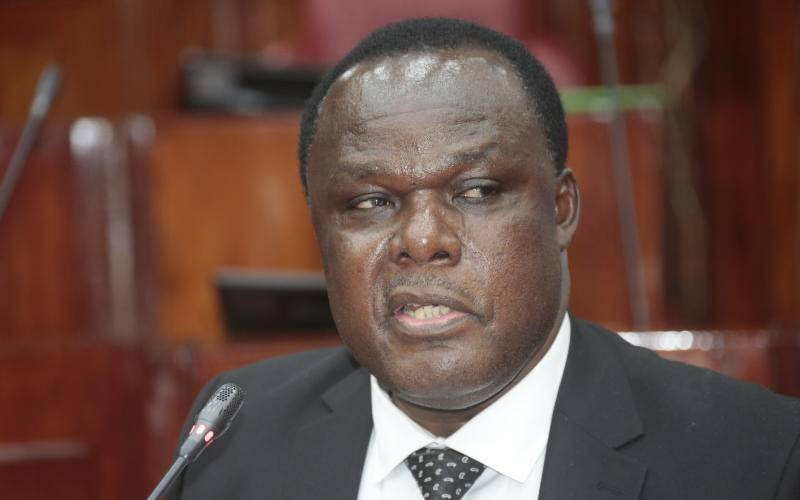×
The Standard e-Paper
Home To Bold Columnists

State Department for Industry PS Dr Eusebius Juma Mukhwana during his vetting at the National Assembly on November 15, 2022. [Boniface Okendo, Standard]
The government has identified a raft of measures that will spur the growth of the manufacturing industry in Kenya, Principal Secretary State Department for Industry Dr Juma Mukhwana has said.